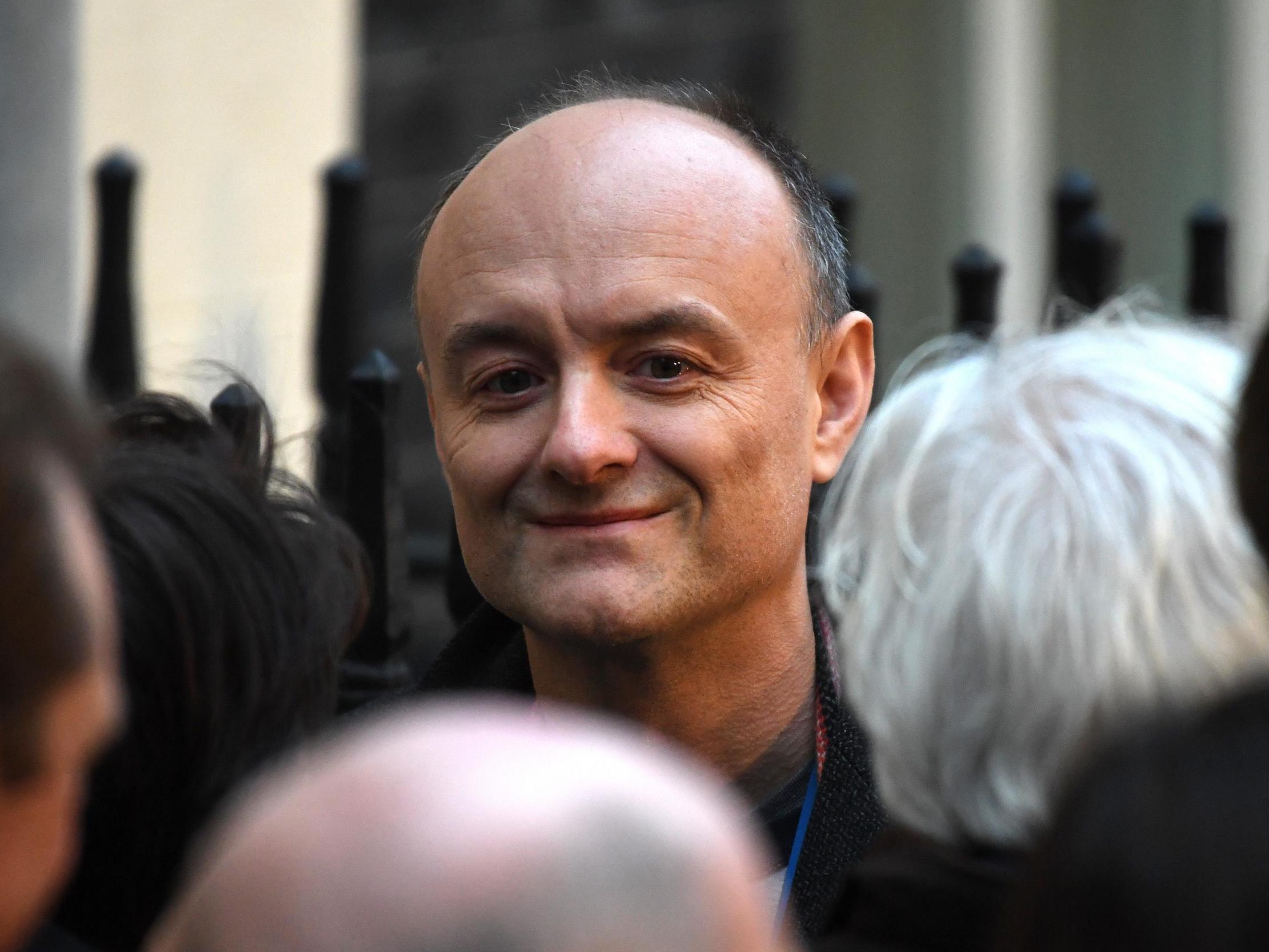Dominic Cummings’ profile has risen to a height even Boris Johnson may now be uncomfortable with
The more the adviser is identified as the true centre of power within government, says Andrew Woodcock, the more he overshadows his boss


One of the first rules of politics is that the adviser should never become the story, because if he or she does they probably won’t survive for long.
Every prime minister has one or two close confidantes in their private offices who they rely on for support, ideas and philosophical ballast.
And it is always an obsession of the political press to find out who that person is, what their ideology is and how much influence they really wield.
Claiming that the adviser is the real power behind the throne is a perennial pastime for lobby hacks, whether insinuating that Tony Blair was taking dictation from Alastair Campbell or Nick Timothy shaping Theresa May’s agenda around the municipal radicalism of his hero Joseph Chamberlain.
But it has rarely happened as quickly and as comprehensively as with Dominic Cummings.
Fascination with Cummings dates back to his time as an adviser to Michael Gove, when his musings on an “Odyssean education” were widely thought to be behind reforms to the country’s schools and his abrasive manner behind the antagonism which the scrupulously polite secretary of state appeared to inspire in the teaching establishment.
It was fuelled by his reputation as the data-manipulating mastermind behind Vote Leave – not least because of his portrayal by Benedict Cumberbatch in a TV dramatisation of the campaign.
And little he has done since coming into Downing Street has served to dampen press interest.
His determinedly dishevelled outfits, his eccentric blogs and his cryptic remarks to doorstepping TV cameras, while apparently displaying an insouciant disregard for his public image, have the combined effect of attracting attention in massive amounts.
When he suggests that PJ Masks could do a better job than the cabinet, or ostentatiously totes a book about Chinese spies into No 10 following the Huawei decision, the barely concealed message is that he can say or do what he likes because he is the one in charge.
And so his fingerprints are seen on everything the government does, whether it’s the forced resignation of chancellor Sajid Javid, the appointment of an aide with bizarre theories about eugenics, the ongoing boycott of unfavoured broadcasters or the threats to the independence of unhelpful courts.
Which is all very well, except that the more Mr Cummings is identified as the true centre of power within government, the more he overshadows his boss.
The question in the coming months will be how long the value of Mr Cummings’s advice and ideas to the prime minister outweighs the embarrassment to Boris Johnson of being made to look like the puppet rather than the puppet master.
With the PM apparently preferring to take the role of a chairman delegating tasks than a chief executive getting stuck into the nitty-gritty of every decision, Mr Cummings’s shelf-life may still have some time to run. But if the laws of politics hold, the higher his profile gets, the more likely he is to fall.
Yours,
Andrew Woodcock
Political editor
Join our commenting forum
Join thought-provoking conversations, follow other Independent readers and see their replies
Comments